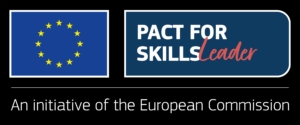(https://www.vea-fs.no/webinars-for-best-practice-in-garden-conservation/)
Norges grønne fagskole – Vea: 2021-1-NO01-KA220-VET-000029621
Erasmus+ VET KA2 Strategic Partnership (2022-2024) NO, DE, NL, SE, UK
The Erasmus+ project “Craft Skills for Garden Conservation” (CSGC) offers skills and training opportunities to the heritage gardening community.
Two of the major crises that characterise the third decade of the 21st Century – Covid and Climate Change underpin this Erasmus + funded project. With green spaces playing a major role in our health and well-being during the covid crisis, it is ever more important that we have the skills to protect them from the ravages of climate change, as well as having the knowledge of sustainable techniques to reduce carbon emissions whilst doing so.
Heritage gardens encapsulate so much of the natural and cultural capital that sustains us during a time of crisis: tranquillity, beauty, productivity and biodiversity. These values require a huge amount of knowledge and skill. But both are in increasingly short supply. CSGC aims to address this problem by finding best practice in the various fields of Garden Conservation and sharing it among the partners and via the diverse bodies of Vocational Education and Training as well as professional horticultural associations. Whilst some nations have retained expertise in certain specialisms, others have not and are searching for guidance, whilst yet more have been researching the increasing relevance of historic techniques to our current challenges. This knowledge deserves wider dissemination if we are to build the necessary expertise throughout Europe and beyond.
We aim to use the latest, but also fully operational and accessible developments in virtual learning to allow a wide range of participants to share in this expertise. An all-day winter webinar will introduce each topic, followed by a range of videos/simulations/animations to explore the practical skills required. A smaller number of participants will then attend a hands-on workshop to practice those skills in the field and bring them back to disseminate to colleagues and fellow students.
At the end of this three-year project, we aim to see a growth and spread of such expertise throughout Europe, so that more local centres of excellence in training the skills emerge, avoiding the need for expensive travel. We also hope to see further growth in the restoration of historic green spaces that can then form the focus for community participation, particularly amongst disadvantaged people who stand to gain so much from this important resurgence of green skills.

This project has been funded with support from the European Commission. This publication reflects the views only of the author, and the Commission cannot be held responsible for any use which may be made of the information contained therein.

